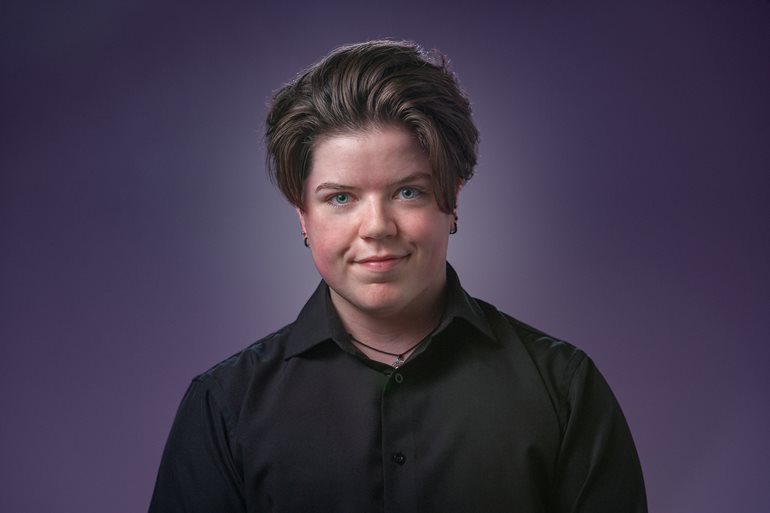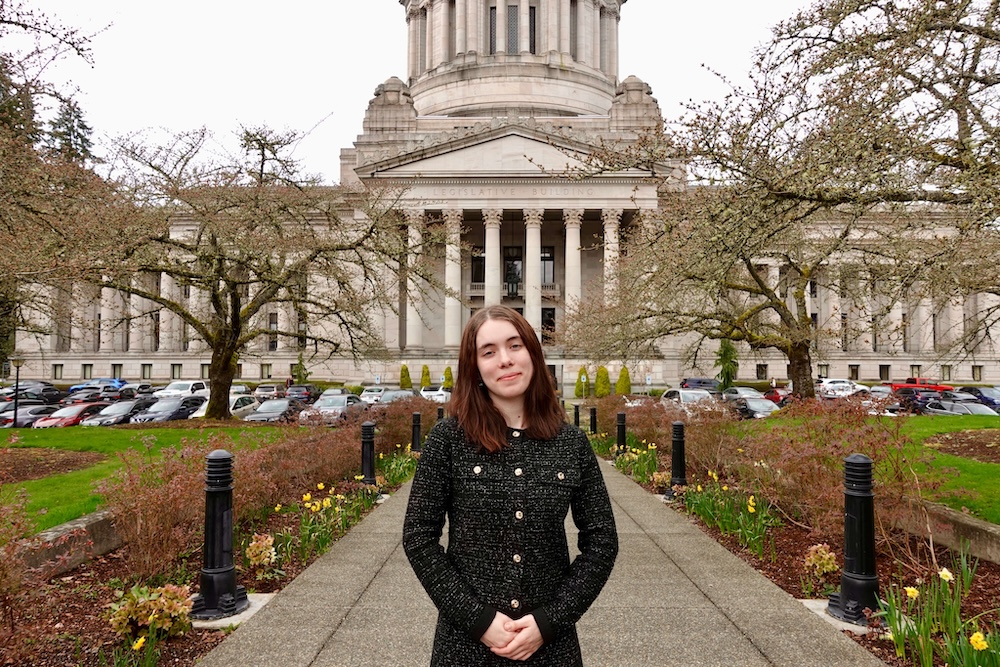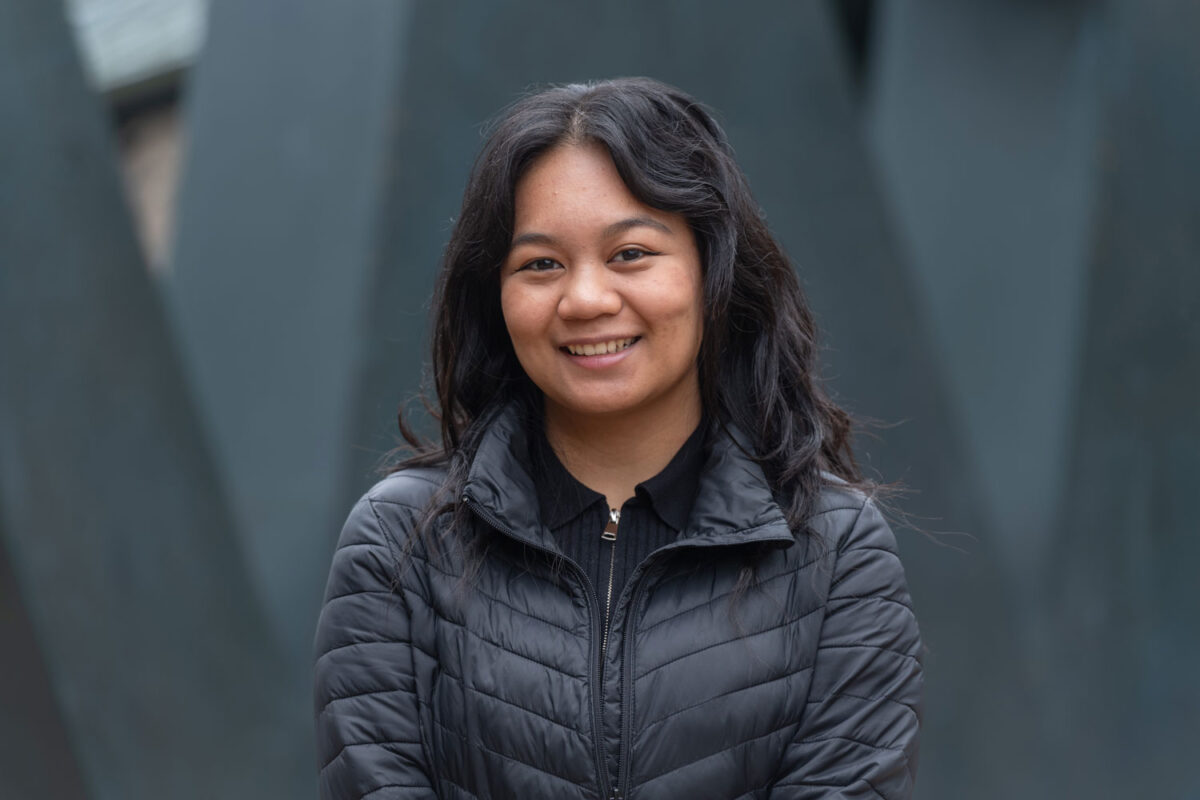By Jesse Blaire

From a young age, I knew all I wanted to “do” was to help people. As I grew older and learned about the world, it was very apparent to me that many people needed to be helped. Including myself.
As a white, transmasculine, nonbinary and queer individual, I’m highly aware of where my identities intersect. Where they collide. When one matters, and the others take a back seat.
Growing up in Texas — from my childhood in the Bible Belt of East Texas to my adolescence in South Texas and later my young adulthood in the Dallas-Fort Worth metroplex — I was constantly aware of my identities that fell under the umbrella of “queer.” My whiteness, and its privilege, was never the first thing others saw. My Otherness was. And the more I tried to feel comfortable in my own skin, the more I accentuated my difference. From obtaining top surgery to beginning hormones and playing with my gender expression, what makes me feel most like me seems to always be at odds with societal expectations. Yet by coming into my own and claiming the right to my own existence, I will always take pride in the pure resilience that comes with living openly.
Moving to Seattle at age 25 was the first time I was surrounded by so many Others, so many marginalized identities and cultures. The power and privilege of my white skin was suddenly made aware to me as I began to listen and understand the experiences of those around me. It became obvious to me that the same power structures of society that so quickly wanted to silence me in Texas were actively silencing Others in the spaces I now stood. My white, masculine-presenting voice could now be used for good or for evil, and I was in shock that people were even wanting to hear me speak.
My studies here at UW Bothell have only opened my eyes that much more to the systemic ways in which people like me, womxn and BIPOC communities have become “Othered.” It has both fueled my fire and threatened to put it out. There is so much to be done, so much progress that needs to be made. How could I, or anyone else for that matter, possibly stand a chance to change the tide? Yet it was the same content from my classes and the fire from my peers and professors that helped stoke mine alive any time it started to flicker.
I found myself taking Gender, Women & Sexuality Studies classes that counted toward my non-GWSS majors where I could learn about people like me and the efforts of the traditionally unseen. I learned about the many ways patriarchy and misogyny controlled who got to speak and who was silenced. And I learned about the dynamic ways of those who actively work to dismantle it. By understanding feminist theory through contributors like scholar Gloria Anzaldúa, civil rights advocate Kimberlé Crenshaw and author bell hooks, and applying it to my other coursework, I started to wonder whose voices I wasn’t hearing from.

It was my GWSS classes that provided the space and dedicated the time to learn about my LGBTQ+ ancestors. For the first time, I could read my history. Learn about the pockets of power and resistance that made my life lived openly possible. While it gave me a glimpse into LGBTQ+ history and movements, it is certainly not the entire story. But it gave me a starting point for my own independent searching. And most importantly, it showed me the power of words. The power of writing.
In times like these — having survived the wanna-be tyrant king of the last presidency and now, as the drafted Supreme Court ruling on the overturn of Roe v. Wade has been leaked — we must all continue writing, speaking, resisting. The fight for equality, bodily autonomy and trans and gender nonconforming existence continues, and we will not be silenced.
It is reasons like these that brought me to The Power of Feminist Writing, a new course taught by Dr. Julie Shayne, teaching professor in the School of Interdisciplinary Arts & Sciences. It has been phenomenal to be able to meet and speak with so many badass published authors, such as Ijeoma Oluo and Sondra Simone Segundo, who have been guests throughout the quarter and have given us an inside glimpse at feminist publication. Having been given the privilege to hear and read these authors’ stories, I now carry confidence in sharing my own.
For many years, I have worked inside myself to undo the traumas of my own history and to see my story as one worth writing. Through my self-work and through the inspiration of those who have shared their story with me, I wish to share my experiences unique to my intersectional identities by writing a memoir. Even if I choose not to pursue its publication, I see the process as therapeutic. To reclaim my voice and my story as I hope to inspire others to do the same by living openly and through my future work in the field of social justice, namely in diversity, equity, inclusion and justice. Even if I choose to keep my lived experience private, I will continue to show up for the queer, trans, nonbinary Others by using my voice — my white, privileged voice whenever possible.
I am hopeful to see the bookshelves diversify. I am hopeful to share my story to help the Others like me, whether in the pages of my very own book or in the many spaces that threaten our silence. To help me heal. And to be heard.
Jesse Blaire (they/them/theirs) is a senior transfer student who will be graduating in June 2022 with a double major in Law, Economics & Public Policy and in Society, Ethics & Human Behavior. They work on campus as a peer consultant at the Writing & Communication Center, and assist Dr. Julie Shayne on her work with the Feminist Community Archive of Washington. After graduating, they are excited to apply for a joint graduate program to complete a Ph.D. in social psychology and a J.D. in law.



